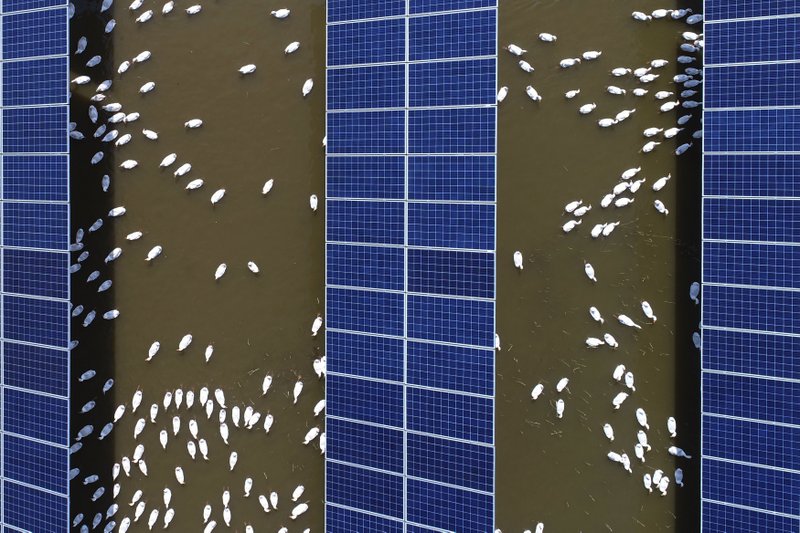BEIJING -- China said it is challenging a U.S. tariff increase on solar panels before the World Trade Organization, adding to its sprawling conflicts with President Donald Trump over trade and technology.
The 30 percent tariffs announced in January improperly help U.S. producers in violation of WTO rules, the Commerce Ministry said. It said a formal complaint was filed Tuesday with the WTO in Geneva.
The solar duties are separate from tariffs the Trump administration imposed last month on Chinese imports in response to complaints that Beijing steals or pressures companies to hand over technology.
The duties also apply to imports of solar cells and modules from Europe, Canada, Mexico and South Korea. That strained relations with U.S. allies.
The Trump administration has defended the solar tariffs as necessary to protect American producers, saying import prices were unfairly low due to subsidies and other improper support.
Washington took action under a 1974 U.S. law instead of through the WTO. That led to complaints it was undermining the global trade body. U.S. officials say such action is necessary because the WTO lacks the ability to address Chinese trade tactics.
China has tried to portray itself as a defender of the WTO-based trading system. It has attempted to recruit European and other governments as allies against Washington, but they echo U.S. complaints about Chinese market barriers and industrial policy.
The European Union filed its own WTO complaint in June against Chinese technology policies that it said violate Beijing's free-trade commitments.
The U.S. solar action "seriously damaged China's trade interests" and "also affects the seriousness and authority of WTO rules," said a Commerce Ministry statement.
WTO complaints begin with negotiations between parties to the dispute. If those fail, the case moves to a panel of experts who can decide whether the trade controls are improper.
In their technology dispute, Washington imposed 25 percent duties on $34 billion of Chinese goods it said benefit from improper industrial policies. Beijing responded with similar penalties.
Another round of U.S. tariff increases on $16 billion of Chinese goods is due to take effect Aug. 23. Beijing says it will retaliate.
Earlier, Beijing filed a separate WTO challenge on July 16 to Trump's proposal for yet another round of increases that would add 25 percent import duties on an additional $200 billion of Chinese goods.
Trump touted his trade agenda Wednesday, tweeting that his tariffs are "leading to great new trade deals."
But so far, he has yet to finalize any trade deals.
The Trump team argues the tariffs are giving them leverage in trade negotiations and any short-term pain from the tariffs will eventually be worth it, but they are yet to see results.
"President Trump has only imposed tariffs. He has yet to get any other countries to remove their tariffs or to remove his own tariffs," Chad Bown, a trade expert at the Peterson Institute for International Economics, wrote on Twitter. "There are not yet any trade deals. None."
The closest Trump has come to a genuine deal is with South Korea and the European Union, longtime political, military and economic allies of the United States. The Trump administration put out an announcement in March saying an agreement with South Korea had been reached "in principle." In July, the White House said the United States and European Union would "work together toward zero tariffs" and start an "executive working group" to hopefully reach a deal. Neither deal has been finalized on paper yet, let alone signed by both sides. Trade experts say a sweeping agreement with the European Union could take years.
Information for this article was contributed by Joe McDonald of The Associated Press and by Heather Long of The Washington Post.
Business on 08/16/2018

